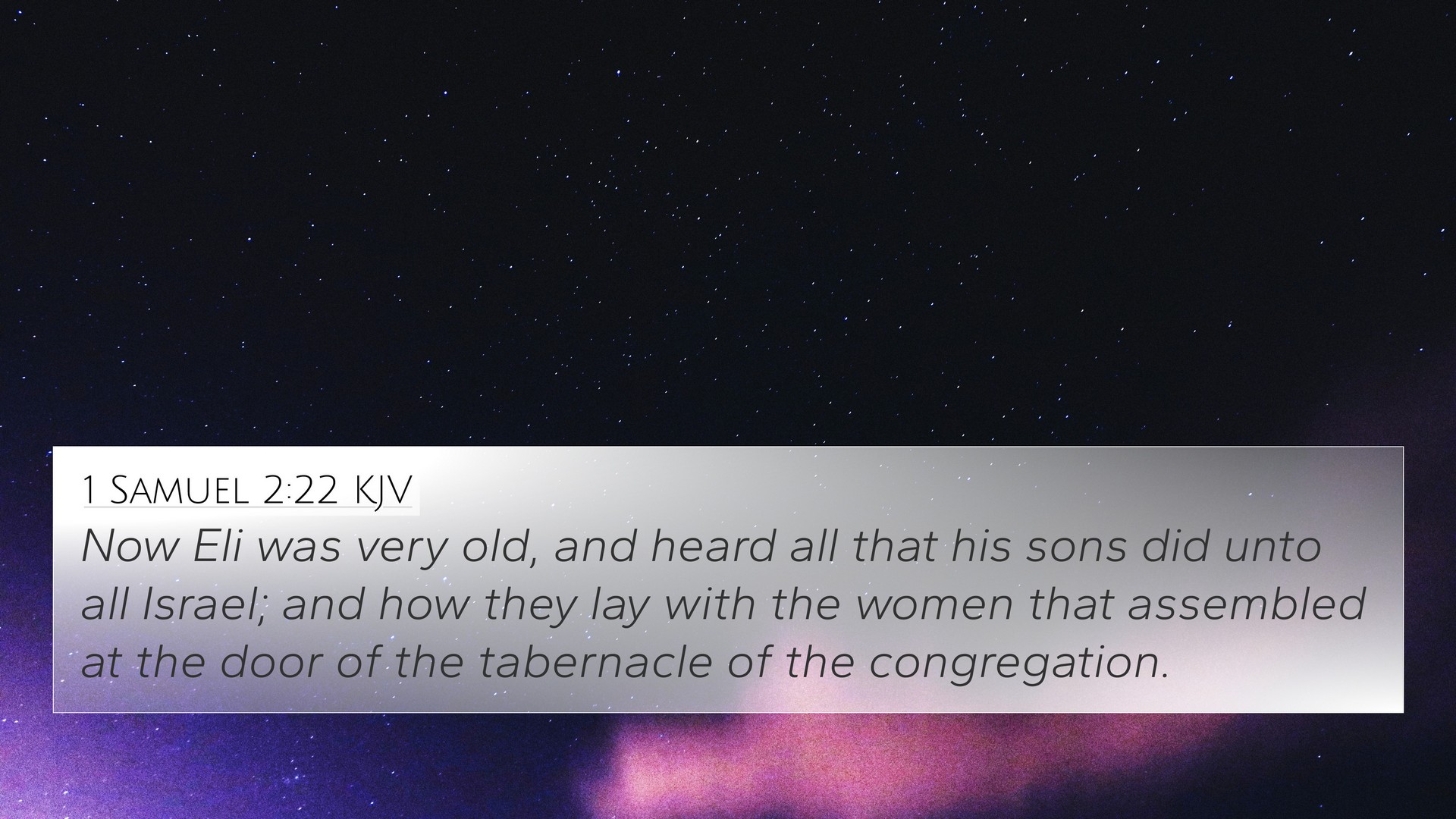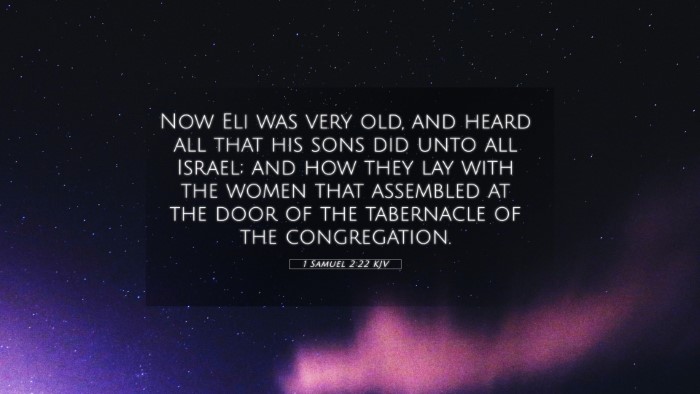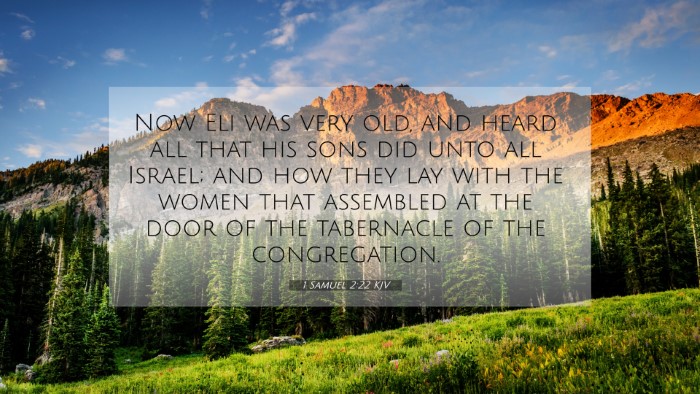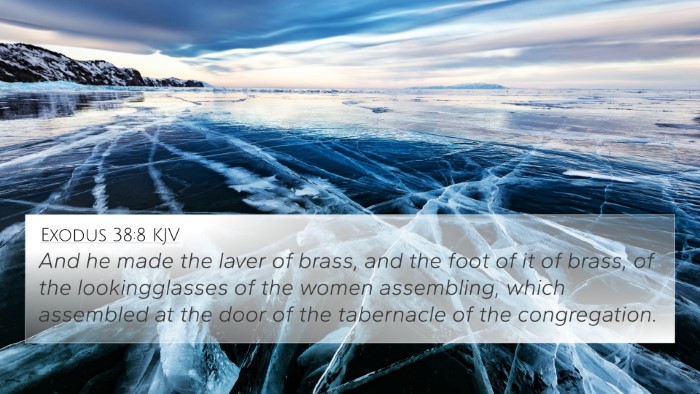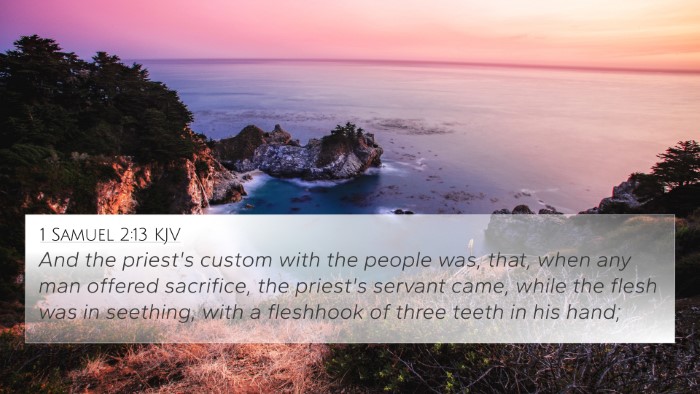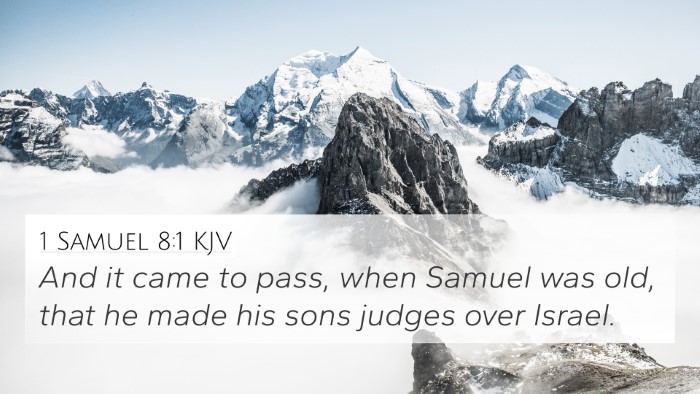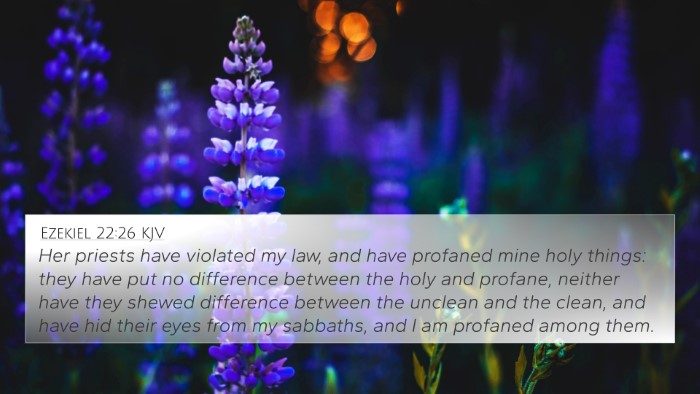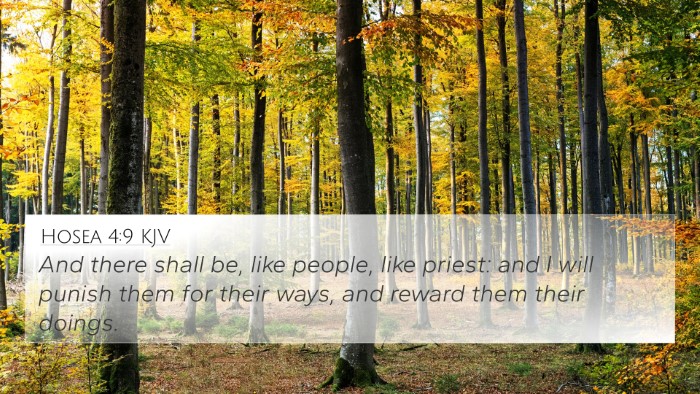Meaning of 1 Samuel 2:22
Verse Context: 1 Samuel 2:22 states, "Now Eli was very old, and he heard all that his sons did unto all Israel; and how they lay with the women that assembled at the door of the tabernacle of the congregation." This verse addresses the troubling behaviors of Eli's sons, Hophni and Phinehas, and highlights the moral decay even among those who are meant to uphold the sanctity of God's priesthood.
Summary of Commentaries
This analysis draws from insights in public domain commentaries including those by Matthew Henry, Albert Barnes, and Adam Clarke.
Matthew Henry's Commentary
Matthew Henry emphasizes Eli's old age and the severe neglect of his parental responsibilities. His sons' actions are condemned, as they exploit their positions, engaging in immoral behavior with women near the tent of meeting. Henry indicates that Eli’s failure to restrain his sons serves as a cautionary tale about the consequences of complacency in spiritual leadership.
Albert Barnes' Notes
Albert Barnes provides a detailed view of the social and religious implications of this verse, pointing out that the sons were not only dishonoring their family but also disrespecting God. The actions reflect a larger theme of the corruption within the priesthood. Barnes notes the importance of accountability in leadership roles and highlights the dire consequences that arise when those in authority are unfaithful.
Adam Clarke's Commentary
Adam Clarke discusses the significance of Eli being aware of his sons' actions yet failing to take decisive action against them. He articulates the concept of free will, suggesting that although Eli admonished his sons, he did not enforce discipline. Clarke emphasizes that this neglect led to serious repercussions for Eli and his household, illustrating the broader theme of divine judgment over irresponsible leadership.
Bible Verse Cross-References
- Exodus 32:25-29: This passage recounts the consequences of moral failures among leaders, paralleling the rebellion of Israel under Aaron.
- 1 Samuel 3:13: It foreshadows God's message of judgment against Eli’s house for their wickedness.
- Leviticus 10:1-3: This shows the seriousness of approaching God inappropriately, much like Eli's sons.
- Hebrews 13:17: It mentions the responsibility of leaders to act according to God’s standards.
- Mark 12:38-40: Jesus warns against the scribes who exploit their positions, similar to Eli's sons.
- Matthew 18:6: It speaks to the severe consequences for causing others to stumble.
- Proverbs 29:15: Highlights the importance of discipline in raising children—a lesson Eli failed to embody.
Thematic Bible Verse Connections
This verse forms a crucial link within the narrative of 1 Samuel, showcasing the importance of integrity in leadership and the moral implications of negligence. It sets the stage for the eventual calling of Samuel and God’s establishment of a new leadership pattern that contrasts starkly with Eli's failures.
Insights and Applications
In studying this verse and its related passages, it becomes clear that Scripture often encourages leaders to uphold accountability and righteousness. The neglected duties of Eli serve as a tragic reminder of the weight carried by positions of authority. The implications for today’s readers include the necessity for vigilance in both personal conduct and the oversight of those we influence.
Tools for Bible Cross-Referencing
Understanding cross-references can greatly enhance Bible study. Tools such as a Bible concordance and cross-reference guides provide essential support in identifying connections in biblical texts, particularly when exploring themes of leadership and moral failure.
How to Use Bible Cross-References
1. Identify Themes: Focus on themes present in the verse, such as leadership accountability.
2. Use Reference Tools: Leverage resources like concordances to explore related scriptures.
3. Comparative Analysis: Examine connections between verses to gain deeper understanding and context.
4. Reflect on Applications: Consider how these references reflect God's nature and responsibilities placed on His people today.
Conclusion
The failure of Eli in 1 Samuel 2:22 is a poignant reminder of the high standards demanded by God of those in leadership roles. As we engage with this scripture, cross-reference it with applicable biblical texts, and reflect on its implications for our lives, it enriches our understanding of God's expectations.
